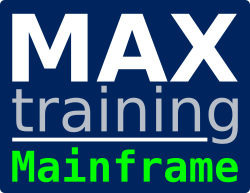Capacity Planning in the Mainframe Environment
Code: CPMAINDescription
This course provides students with a comprehensive grounding in the philosophy, methodologies and techniques of Capacity Planning.
Audience
This course is designed for performance analysts and z/OS support staff who require a solid understanding of the principles, concepts and techniques behind Capacity Planning.
Prerequisites
A general exposure to the z/OS environment is desirable. However, the class includes a short introductory segment providing the key z/OS and statistical knowledge required for effective Capacity Planning.
Objectives
This course provides students with a comprehensive grounding in the philosophy, methodologies and techniques of Capacity Planning. Wherever possible, the instructor will make reference to the delegates' current and anticipated hardware and software configurations.
Topics
What is Capacity Planning?
A definition of Capacity Planning.
Where do we start?
Guesses or Guidelines?
The starting point.
Measurements.
What sort of measurement?
Statistical Methods
Some terminology.
Bar chart.
Histogram.
Normal Distribution.
Mean.
Variance and Standard Deviation.
Populations and Samples.
Service Level Agreements
Identifying business elements.
Methodology.
Service levels and objectives.
Service Level Agreements.
Cost control and charge back.
Capacity Planning Methods
Capacity methods.
Guidelines.
Linear Predictions.
Analytic Methods.
Discrete Methods.
Benchmarking Methods.
Comparison of techniques.
Important Capacity Planning Terms.
MIPS ITR RPP and M-value.
Captured and Uncaptured time.
Balanced System.
Measures of saturation.
Erlang response time.
Service Units.
Capacity Planning Tools
Overview of Capacity Planning Tools.
Large Systems Performance Reference.
MAINVIEW.
STROBE.
SoftCap.
Other tools.
Price (ex. VAT)
Duration
Delivery methods
- Classroom
- On-site (at your location)
- Virtual (instructor online)
